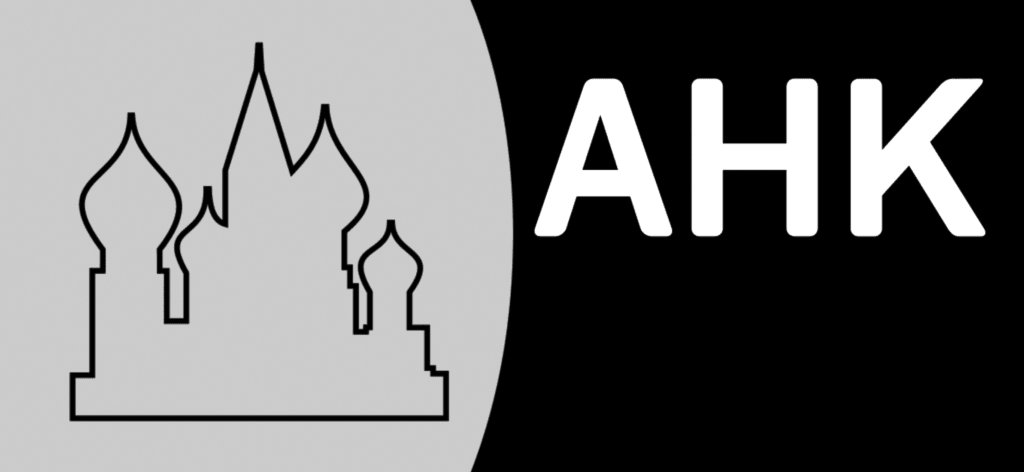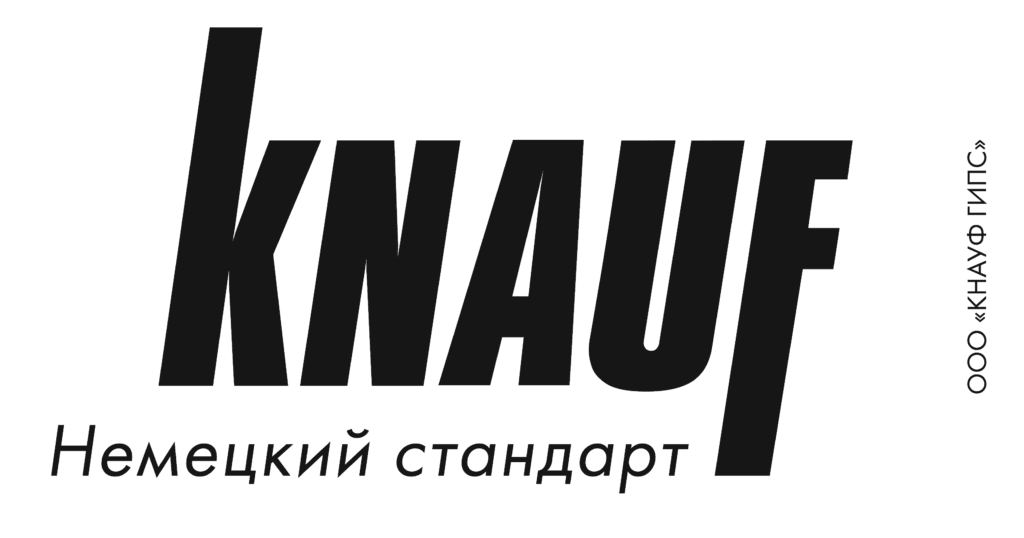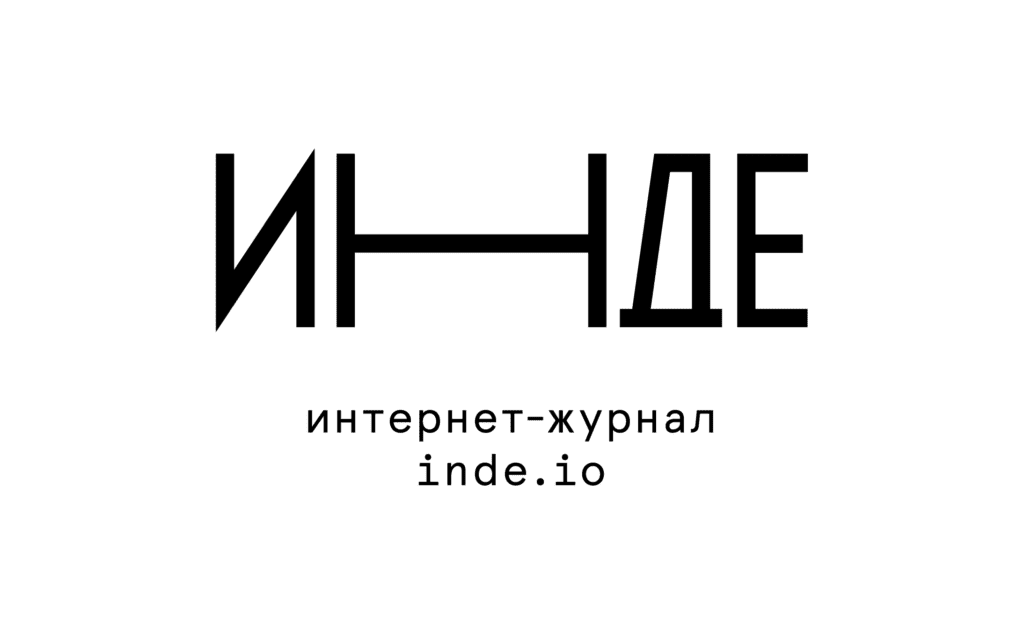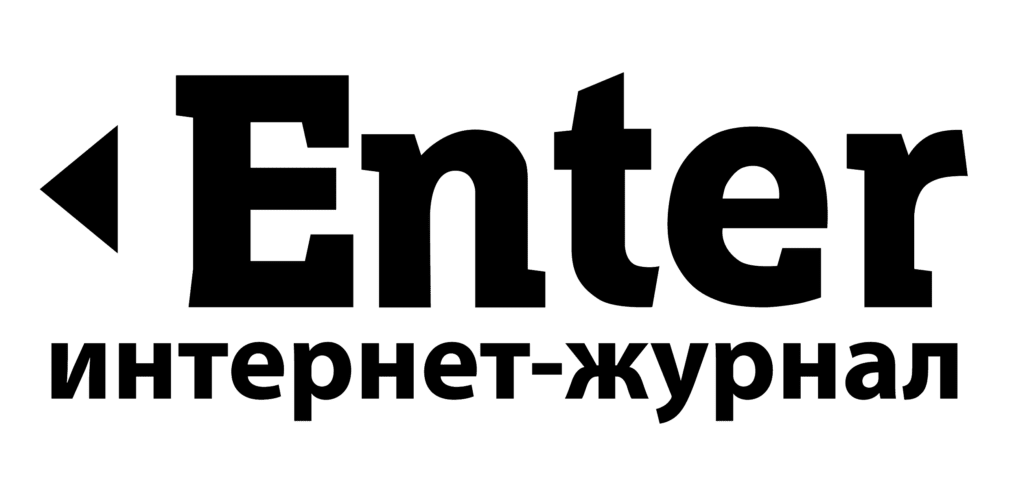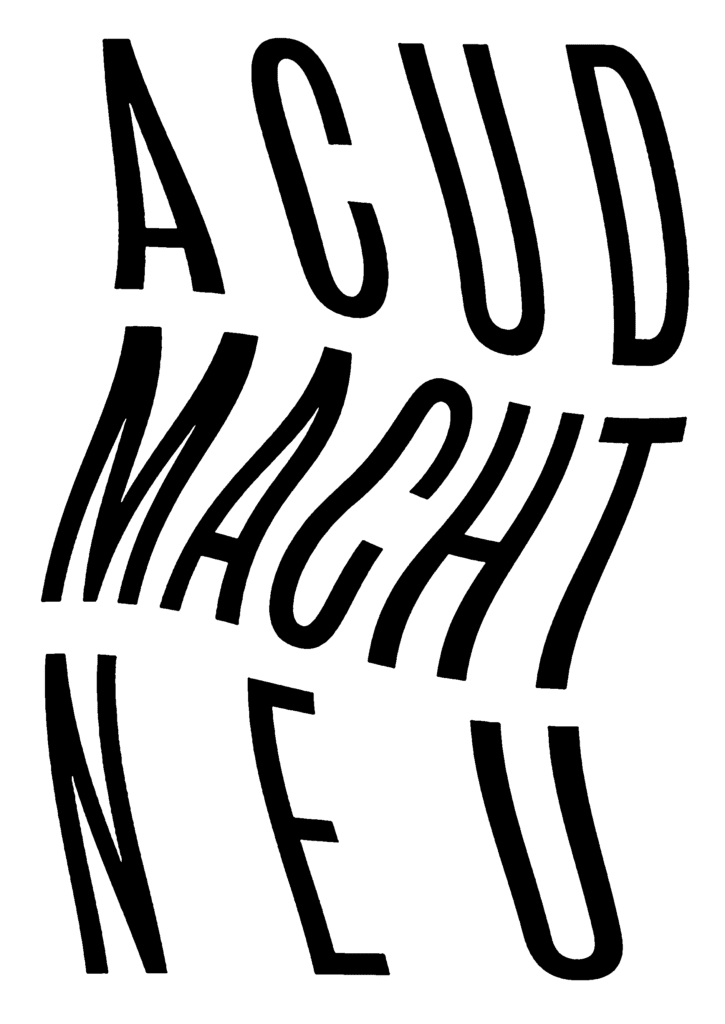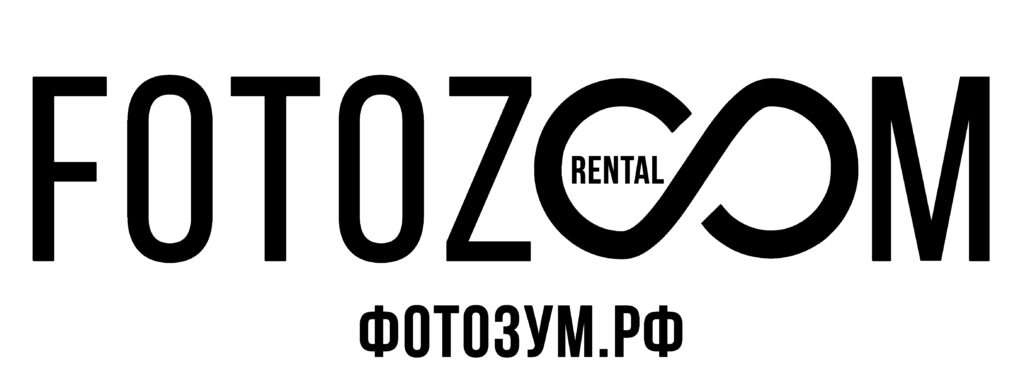Video documentation
Pop-up festival dedicated to German culture and language will take place in Kazan on November, 19–29 as part of The Year of Germany in Russia 2020/2021.
As part of the festival Center of Contemporary Culture “Smena” and German curator Guido Möbius are organizing a special programme RODINA-SET’. It will present several new projects and will include exhibitions, concerts, lectures and film screenings.
The festival will present German and Russian avant-garde art practices involving music, art and technology and will help initiate a creative dialogue between musicians, artists and cultural institutions of the two countries.
Most of the festival events will be streamed online and will be available on the festival’s website.
The Embassy of the Federal Republic of Germany in Moscow, The Goethe-Institut in Moscow and Russian-German Chamber of Commerce are the organizers of The Year of Germany in Russia.
About
Pop-up festival dedicated to German culture and language will take place in Kazan on November, 19–29 as part of The Year of Germany in Russia 2020/2021.
As part of the festival Center of Contemporary Culture “Smena” and German musician Guido Möbius are organizing a special programme RODINA-SET’. It will present several new projects and will include exhibitions, concerts, lectures and film screenings.
The festival will present German and Russian avant-garde art practices involving music, art and technology and will help initiate a creative dialogue between musicians, artists and cultural institutions of the two countries.
Most of the festival events will be streamed online and will be available on the festival’s website.
The Embassy of the Federal Republic of Germany in Moscow, The Goethe-Institut in Moscow and Russian-German Chamber of Commerce are the organizers of The Year of Germany in Russia.
PROGRAMME
19 november, 19:00 MSK
SMENA, Online
Opening of the Pop-up Festival of German language and culture in Kazan / Opening of Hanno Leichtmann’s TRPT4769 sound installation
Collaborations
28 november, 19:00 MSK
SMENA, Online
As an exclusive commission for the programme local producer duo DJINN CITY and GUIDO MÖBIUS‘s collaboration with the musician SUGDER LUDUP and the FOLKLORE ENSEMBLE OF THE KAZAN CONSERVATORY will present the Vatannar project. This elaborate cooperation encompasses various musical cultures. At it’s centre are the traditional songs of the Tatar and Mari, a Finno-Ugrian people who are also at home in Tatarstan. Aidar and Timur from Djinn City both have Tatar roots and had the opportunity to record with the FOLKLORE ENSEMBLE OF THE KAZAN CONSERVATORY. Inspired by the beauty of those traditional song pieces they invited Berlin resident musician Guido Möbius to make music with them based on the recordings. Sugder Ludup from the Republic of Tuva in southern Siberia is also included as a guest player. Ludup is virtuoso on, among others, the traditional string instrument doshpuluur and the Khoomei style of throat singing which is typical in Tuva.
20 november, 20:30 MSK
ACUD Berlin, Online
Producer Julien Deblois aka DEBMASTER has over many years and with an enormous output managed to develop a completely unique sound aesthetic. For Rodina-Set’ he will produce a new show using industrial sounds and field recordings from Kazan. The Kazan resident musicians Luiza Nizamovs, Radif Kashapov, Timur Khadeev, Bayaru Takshina, Sergey Kostyuzhov and Dima Smorodin collect and edit the most varied urban everyday sounds. From building site alarms to scraps of conversations and church bells, all of which creates a kind of Kazan-Sound-Library. Using this material Debmaster has built new tracks.
Exhibition Project
19.11-29.11
SMENA
As part of the ten day long festival programme in Kazan HANNO LEICHTMANN‘s sound installation TRTP4769 melts together sounds from Harry Partch’s originally designed instruments on a psychoactive sound journey. The opening of the festival will happen simultaneously with the opening of the installation at Smena, including an online artist talk with Hanno Leichtmann on November the 19th.
Music Program
20 november, 21:00 MSK
ACUD Berlin, Online
LIVE STREAM FROM ACUD BERLIN www.acudmachtneu.de
https://soundcloud.com/jasmineguffond
Musician and sound artist Jasmine Guffond released 2 solo albums on the label Sonic Pieces and another on Karl Records. Her latest album „Titel“ came out in spring 2020 on Editions Mego. In 2016 she received a working scholarship for new music and sound art from the Berlin senate and she is currently a PhD candidate at the University of New South Wales Art and Design conducting research into sound as a method of investigation into online surveillance cultures. In her live sets Jasmine Guffond unfolds abstract digital sound structures which are interpreted perfectly by the „visual artist“ Ilan Katin. Thereby the language of sound and images are inseperably entwined so that an audio-visual Gesamtkunstwerk comes about. In this way categories like space and duration seem to be negotiable and moving. The one blends into the other and ultimately is dissolved.
GORDAN join traditional Serbian singing with abstraction, energy and minimalism. Their music is marked by radical reduction, seemingly endless ascension and a passion for experiments. The Serbian singer Svetlana Spajic is an internationally recognized and acclaimed artist. She, like almost no other contemporary singer, is a master of all the complex local stylistic variations of singing from Balkan music. Guido Möbius plays bass and various electronic sound generators. Additionally he uses guitar amps, microphones and effects to provoke feedback which either harmonize or are juxtaposed with the song. It is a dialogue between sound and noise which is accentuated or fragmented by means of Andi Stecher’s extremely expressive drumming. With a rich pool of ideas the percussionist drives the sound forward breathlessly and grounds it. Together the trio form a dynamic body of sound.
https://soundcloud.com/lestrucs
Concerts by Charlotte Simon and Zink Tonsur, better known as Les Trucs, tend to veer off into wild happenings.The performance duo always play in the middle of the room, surrounded by their listeners. Exclusively illuminated by mine lamps which the two bind to their foreheads, these are part of their machine parks. Its about sweaty folk songs, surrealism and inner organs. Les Trucs have existed as a live band since 2008. The duo from Frankfurt have released concept albums on labels such as Staatsakt, Fettkakao or Zeitstrafe. https://knertz.bandcamp.com/album/les-trucs
https://debmaster.bandcamp.com/album/mc-yallah-x-debmaster-kubali
Producer Julien Deblois has over many years and with an enormous output managed to develop a completely unique sound aesthetic. Saw tooth bass, shimmering planes and distorted beats count as the tools of his trade. Among of his most recent, internationally successful projects include the collaboration with rapper MC Yallah from Uganda (Nyege Nyege Records). For his Rodina set Debmaster will produce a new show using industrial sounds and field recordings from Kazan. The Kazan resident musicians Radif Kashapov, Timur Khadeev, Bayaru Takshina and Sergey Kostyuzhov collect and edit the most varied urban everyday sounds. From building site alarms to scraps of conversations and church bells, all of which creates a kind of Kazan-Sound-Library. Using this material Debmaster has built new tracks.
21 november, 19:00 MSK
SMENA, Online
In addition the renowned experimental contemporary music KYMATIC ENSEMBLE will take part in the form of a concert on Nov.21st as well as a workshop on Nov.22nd. The ensemble explores and develops the multimedia and interdisciplinary trends in modern music. It is a collective of young intellectuals, professionally trained musicians-improvisers experienced in contemporary and historical performance practice, combining the sound of contemporary, baroque and historical ethnic instruments with newest multimedia technologies.
New programme “Low\High” was put together specifically for the festival and includes works by modern German composers Johannes Kreidler, Wolfgang von Schweinitz, Moritz Eggert, Martin Schuettler and Andrej Koroliov.
27 november, 21:00 MSK
WERK, Online
LIVE STREAM FROM WERK (KAZAN)
https://soundcloud.com/klotho00
Klotho is a solo project of Mark Griboedov, one half of electronic duo Yung Acid. Its name comes from Greek goddess Coltho who spins the thread of human life. Mark defines Klotho’s music as “futuristic and intuitive sounds through which he explores himself and the world around him”. His means of creating music include field recordings, sounds of ethnic instruments and analog and digital synthesis. At “Rodina Set” Klotho will present a new audiovisual programme created together with digital artist Innapau.
https://soundcloud.com/aiiidmusic
The man behind AIIID is Aidar Gainullin, one of the most interesting young bass players in Russia. His background includes playing in jazz, pop, rock and emo bands. AIIID merges all of this experience with Aidar’s love for electronic music and hip-hop. AIIID’s shows always include a psychedelic audiovisual component. And his special set at “Rodina Set” will not be an exception.
https://soundcloud.com/user-297626418
Visual artist and composer Dima Nomer works with field recordings of the city. They include layers of industrial noises, car sounds and random dialogues. The randomness of these sounds, along with their transformation with the listener’s movement, is what interests Dima Nomer. The genres he works with include industrial, drone and rhythmic noise.
https://soundcloud.com/daliladelarosa
Dalila’s ambient works have been released on labels Unline (Russia) and Best Effort (Australia). She is inspired by ritual music and appreciates “minimalism, simplest patterns and continuity”. “For me it’s important to not only listen, but hear. To find beauty in every rustle and rasp,” says the artist.
https://soundcloud.com/mashavolum
Kazan DJ Masha Volum and Werk cofounder Ruslan Chizhov will play a 1-hour B2B set that will be streamed online. Masha and Ruslan are part of Werkstatt – a community of artists, producers and DJs centered around Kazan art space Werk.
Films
26 november в 19:40
29 november в 18:00
SMENA
(Marie Losier, 2019 / 51 мин.)
Fall into the world of Felix Kubin’s experimentation and creation of music sound and his mastering of his instrument of predilection, the KORG MS20. A portrait of a great artist who never stops living with music in his head. With Felix creative power and endless inspiration, the film brings you into the universe of pure Music, from electronic music, to radio play, pop, music concrete, opera, and microphone experiments…. Felix is the little Nemo of a new sleepless world of music and pure joy!
After the film screenings Felix Kubin will dial in via zoom to answer questions from the audience in Kazan.
26 november в 18:00
29 november в 19:00
SMENA
(Reto Caduff, Stephan Plank, 2017 / 88 мин.)In the 70s and 80s, artists such as Kraftwerk, David Bowie, Brian Eno, Gianna Nannini, Ultravox and the Eurythmics queued to record in Conny Plank’s studio, a farmhouse near Cologne.
After the film screenings Conny Plank’s son Stephan will dial in via zoom to answer questions from the audience in Kazan.
Educational Programme
In the 2010s music festivals began to have an impact on the cultural image of the their host cities. The music line up, lectures and master classes of the events’ programme tend to influence local cultural landscapes and help to build local music scenes. Among the best examples are CTM in Berlin, Unsound in Krakow, Le Guess Who? in Utrecht, Inversia in Murmansk and Platforma in Nalchik. These and other less popular festivals give opportunities to the artists from local communities to perform and promote themselves.
Kristina Sarkhanyants is a music journalist and author of the Telegram blog Чушь в массы! (Nonsense to the Masses) who has worked at many Russian and foreign festivals. She will speak about the similarities and differences between Russian and foreign festivals, the ideas these festivals translate, their educational functions and the impact they have on the local cultural landscape.
30 years ago Russia and Germany were going through similar phases. The Berlin Wall and Iron Curtain fell, and new countries rose from where the old ones had been. These events influenced both countries’ cultural landscapes. Electronic music became the new sound of Russia and Germany. The rave revolution was happening simultaneously with the change of lifestyle and political order.
How did the rave scenes in Russia and Germany develop? What did they have in common and what was different? What was the role of East Germany residents and Sergei Kuryokhin? How did German music influence Russian music and in what ways did Russian club industry follow the Berlin example? What is “The Russian wave” and what is the place of Russian artists on the German music landscape today?
All of this will be covered in the lecture by Nick Zavriev, musician, DJ, journalist and teacher from Moscow.
Musician Robert Lippok of “Ornament und Verbrechen” and “To Rococo Rot” fame will speak about the musical life of Germany in his lecture “Pre wall / post wall Berlin. From Underground to techno and beyond”.
Frank Dommert from the famous Cologne based record store a-Musik will do a narrated DJ set live from the shop where he will sketch out a personal history of Krautrock based on music examples.
Marie-Pierre Bonniol is the founder of the international booking agency “Julie Tippex”. Her lecture “Present and future of German festival and club scene” is dedicated to the effects of the COVID-19 pandemic on the German music industry.
Kymatic Ensemble’s workshop is dedicated to different types of graphic and verbal scores. It will include a short introductory lecture on the history and evolution of graphic notation.
About
Pop-up festival dedicated to German culture and language will take place in Kazan on November, 19–29 as part of The Year of Germany in Russia 2020/2021.
As part of the festival Center of Contemporary Culture “Smena” and German musician Guido Möbius are organizing a special programme RODINA-SET’. It will present several new projects and will include exhibitions, concerts, lectures and film screenings.
The festival will present German and Russian avant-garde art practices involving music, art and technology and will help initiate a creative dialogue between musicians, artists and cultural institutions of the two countries.
Most of the festival events will be streamed online and will be available on the festival’s website.
The Embassy of the Federal Republic of Germany in Moscow, The Goethe-Institut in Moscow and Russian-German Chamber of Commerce are the organizers of The Year of Germany in Russia.
The year of Germany in Russia 2020/2021
A series of events dedicated to German culture, language and society will take place in Russia as part of The Year of Germany in Russia 2020/2021. These are Pop-up festivals in Kazan, Krasnodar, Kaliningrad and Vladivostok. In addition to them a series of cultural events, scientific and economic conferences and youth forums will be organized all across Russia up until the end of June 2021. The Year of Germany in Russia also supports projects (jointly developed by Russian and German partners) aimed at strengthening cultural, social, scientific and economic relations between the two countries.
The Embassy of the Federal Republic of Germany in Moscow, The Goethe-Institut in Moscow and Russian-German Chamber of Commerce are the organizers of The Year of Germany in Russia.
Pop-up festivals of German language and culture
November 2020 – June 2021 Pop-Up festivals of German language and culture will take place in Kazan, Krasnodar, Kaliningrad and Vladivostok. The event in each city will be dedicated to one main topic, i.e. electronic music, contemporary art, ecology and sustainable development, education and German language. German and Russian cultural, civil society and business partners jointly develop an extensive programme to unite pop-up festivals all across the country.
Supported by
